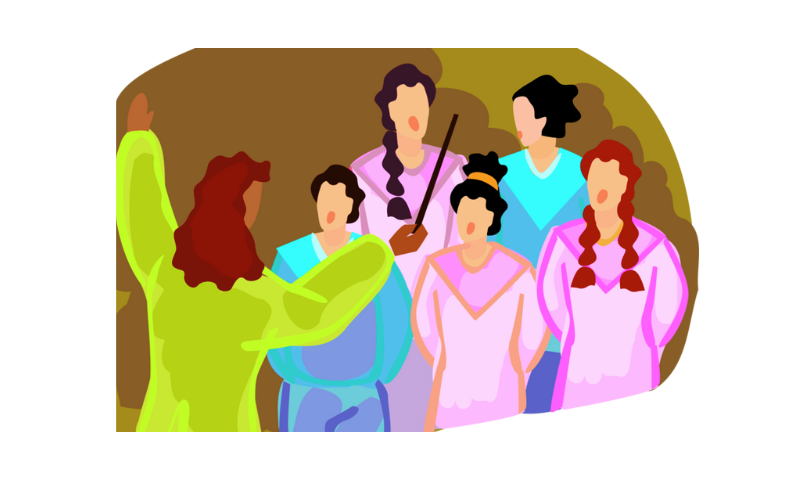Hannah Rubin
Tablet, Mar. 20, 2023
“In the traditional world Bais Yaakov inhabits, romantic love is considered sacred and deeply private, so productions eschew it wholesale. Most don’t contain so much as a shidduch date.”
A cart wrapped in wood contact paper trundles on stage, pushed by a figure in an overcoat and downy beard. Emblazoned on its side in curlicued script: “Yankel’s Yarmulkes.”
“Here it is,” the seller booms, approaching a forlorn, pantaloon-clad youth. “My magical yarmulke, my special kippah—which I present to you, Chananya Yom Tov Lipa!”
We are at opening night of The Magic Yarmulke in early January. The cast: teenage students at the all-girls school Bais Yaakov Miami. The audience: a sold-out crowd of more than 900, all female, predominantly religious. The plot: A schlimazel sees his life turn around after donning a kippah he believes is enchanted, only to learn that transformation comes from within. The moral: Believe in your God-given strengths.
Each year, spiritually instructive tales like this one are performed by students in Orthodox girls schools across the U.S., at institutions associated with the Bais Yaakov educational movement and otherwise. Whatever their specific connection to Orthodoxy, these student-led productions reflect much the same amateur enthusiasm and earnest effort of their secular cousins: collaborative feats of line-perfecting, harmony-composing, dance-devising, scenery-painting, costume-sewing, and sleep-sacrificing. … [To read the full article, click here]


